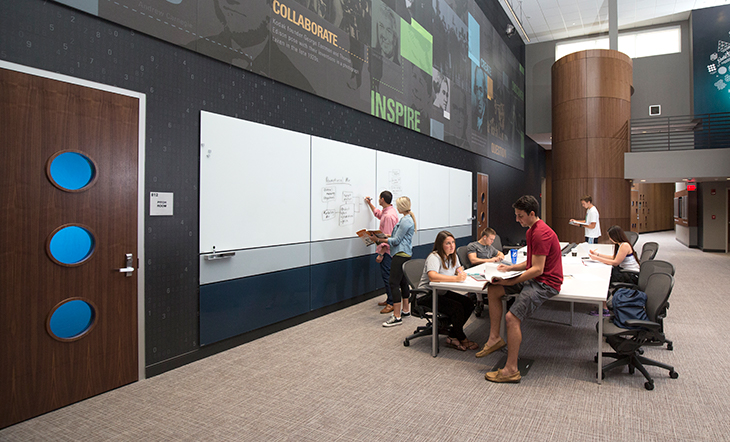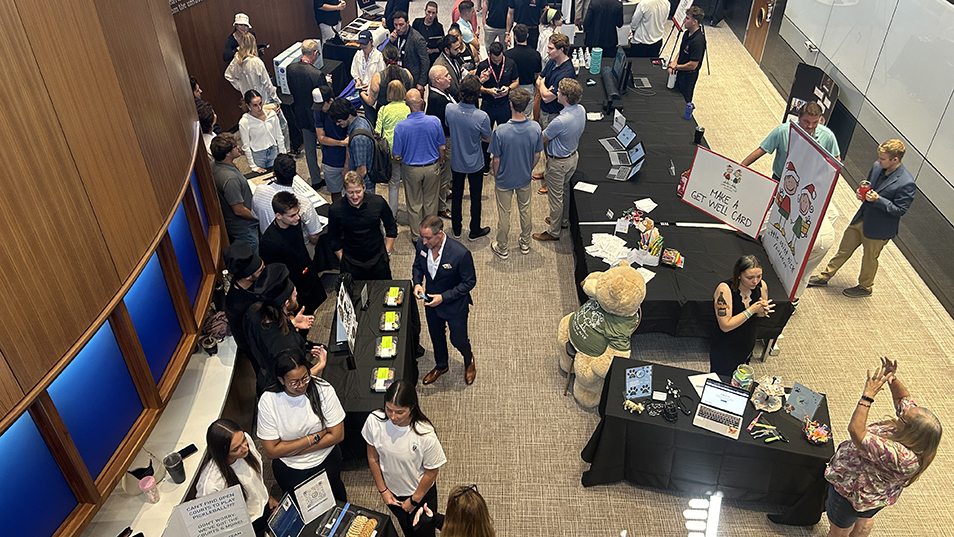Published: January 03, 2019
Catalyzing Social Innovation
As an entrepreneurship and strategy scholar, Thomas G. Pittz, assistant professor of management, has seen a shift in how decisions about the direction of a business are made.
“In the ’80s and even ’90s, decision making was really closed off. Often, it happened as clandestine meetings of corporate elites who would sit in a room and come out to make their pronouncements. That’s changed,” he said, explaining that technology requires businesses to respond more quickly.

An exploratory study found compassion and open strategy are key to success in social entrepreneurship.
“Customers have much more direct avenues to give feedback and can express their desires and needs much more quickly than ever before,” he said. “So the idea that a certain small group of people even have the ability to make those decisions is really a passé phenomenon.”
Instead, Pittz said businesses now use more of an open strategy approach, where they solicit information from not only those within an organization, but also from external stakeholders.
With the rise of social entrepreneurship — the use of startup companies to develop solutions to social, cultural or environmental issues — Pittz wondered how open strategy would apply to these more altruistic ventures.
Together with colleagues at East Carolina University, Pittz used an inductive case study approach to explore the motivations and methods of five social entrepreneurial ventures — College Politics, Food 4 Thought, Delta Books, ImmuNOcancer and Underwater Farms. Their findings, “Catalyzing Social Innovation: Leveraging Compassion and Open Strategy in Social Entrepreneurship,” were published in the New England Journal of Entrepreneurship.
“It was an exploratory study to ask, ‘Does compassion breed resilience? Does open-governance structure breed flexibility that allows these businesses to thrive and survive in pretty difficult market circumstances where a regular business would otherwise not?’” he said.
The answer to both questions, at least in the case of these five ventures, was yes.
When compassion was the motivator for founding the business in the first place, it made the founders more open to change.
“If you’re motivated by compassion and social concerns, that’s very different than being motivated by money,” said Pittz. “You’re so motivated by the mission itself that you’re willing to pivot and change.”
As for open strategy, of the five social entrepreneurial ventures, several organizations significantly redesigned their businesses in light of feedback from stakeholders.
“If your motivation is truly compassion and your goal is social betterment, does it matter if someone over here has a similar idea and it takes off if it’s achieving that end goal? In a perfect world, you’re happy for them, you’re working together. That’s the ultimate goal,” he said.
Read more stories like this in the Winter 2019 UT Journal.



